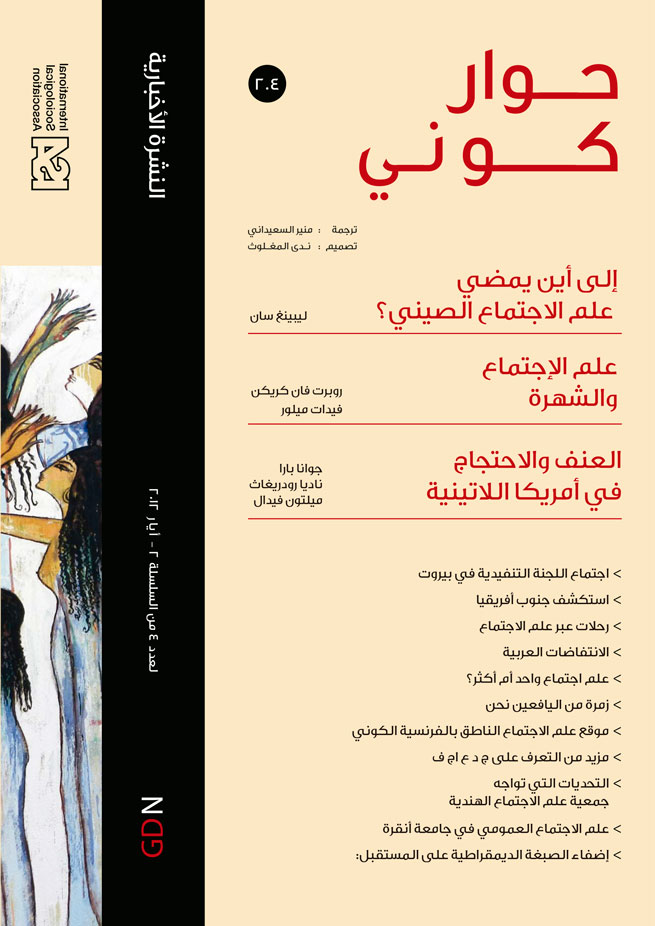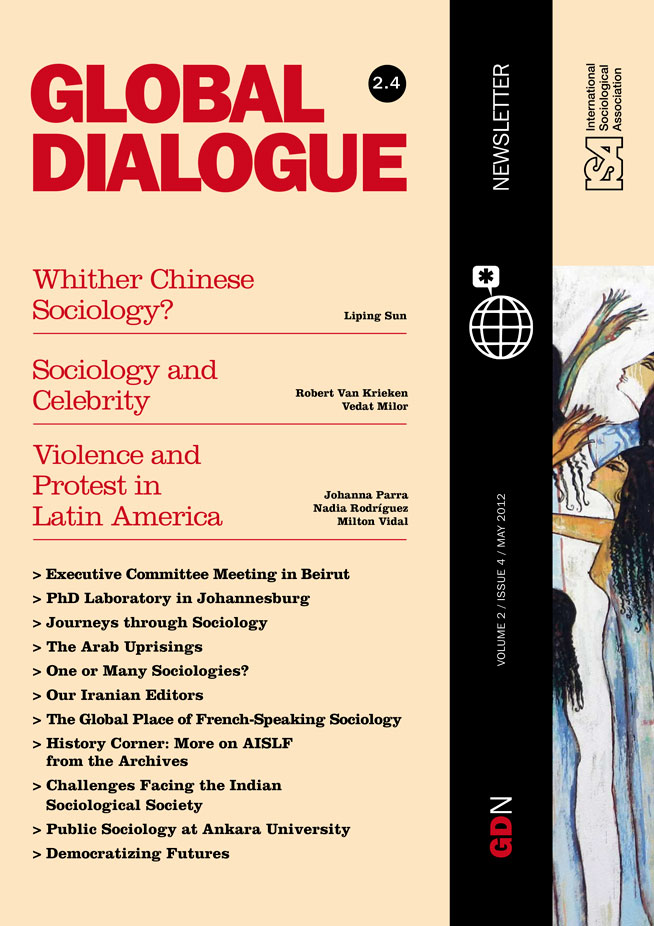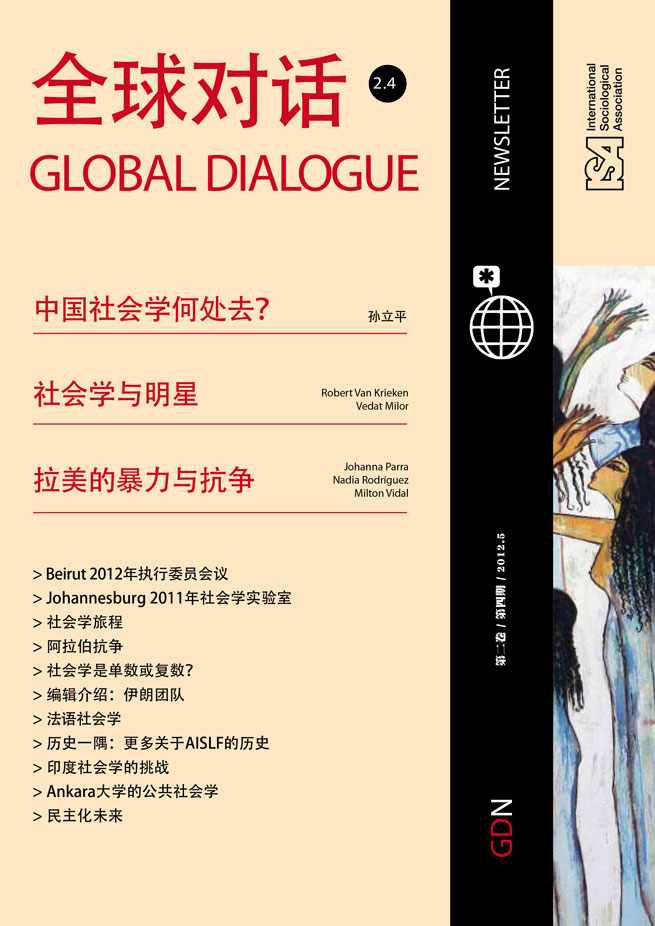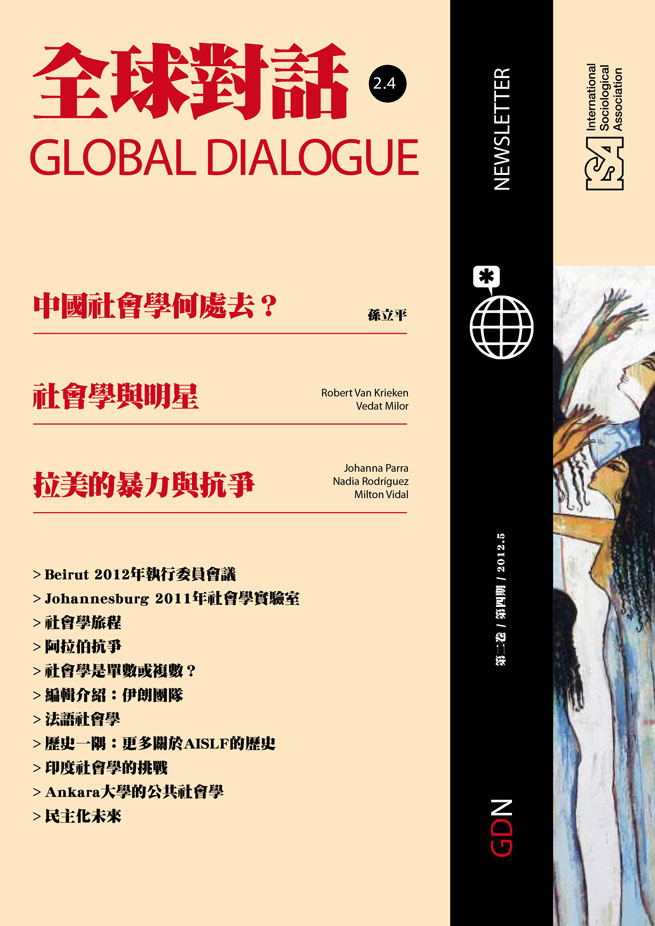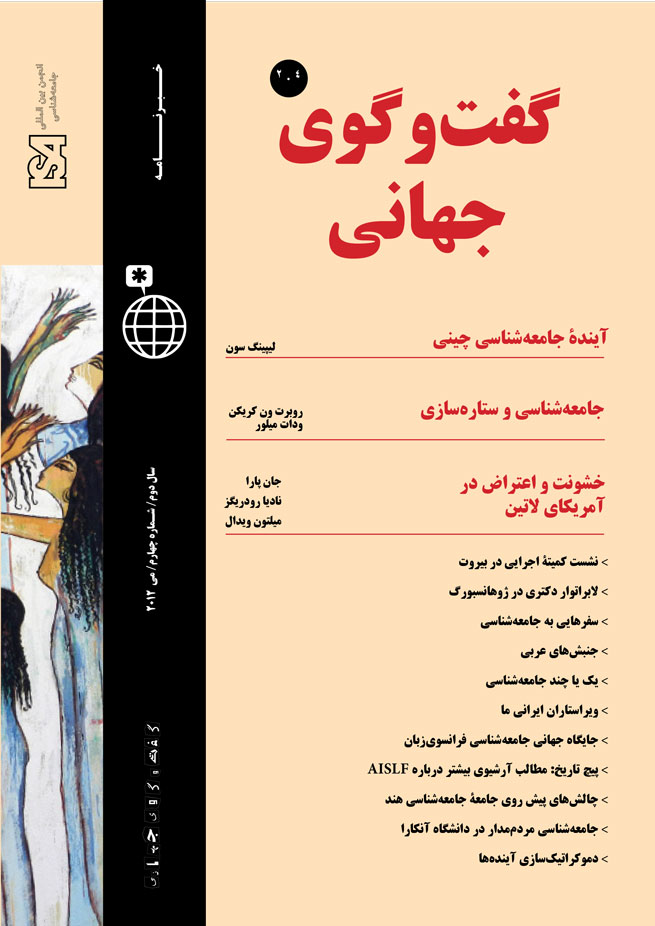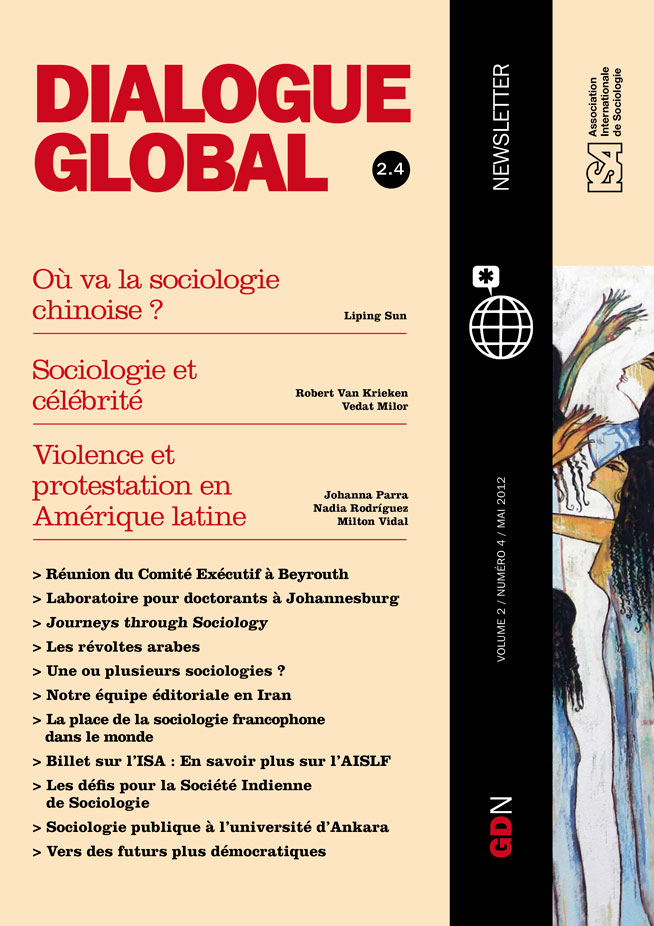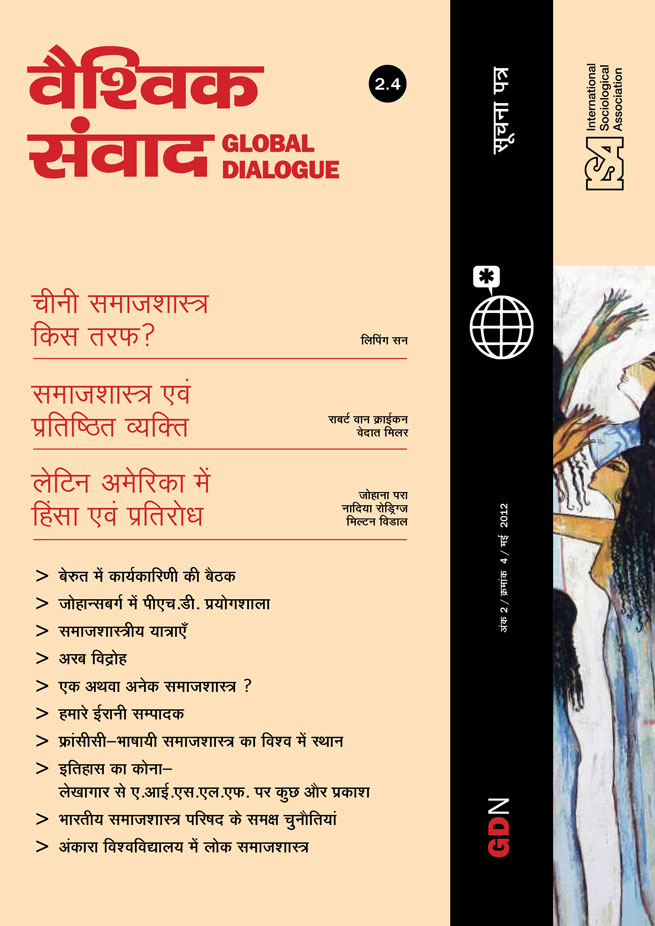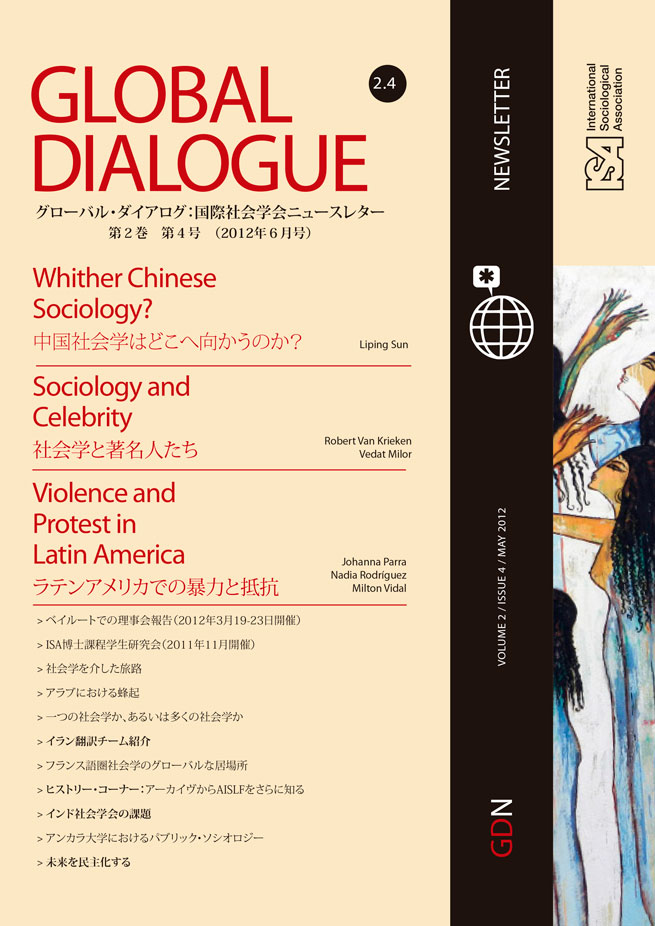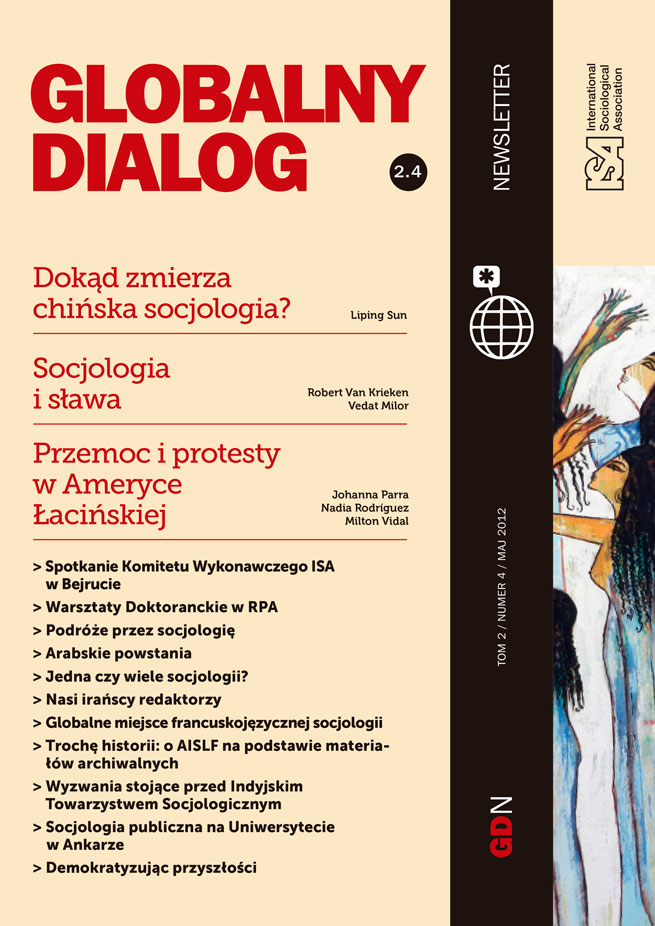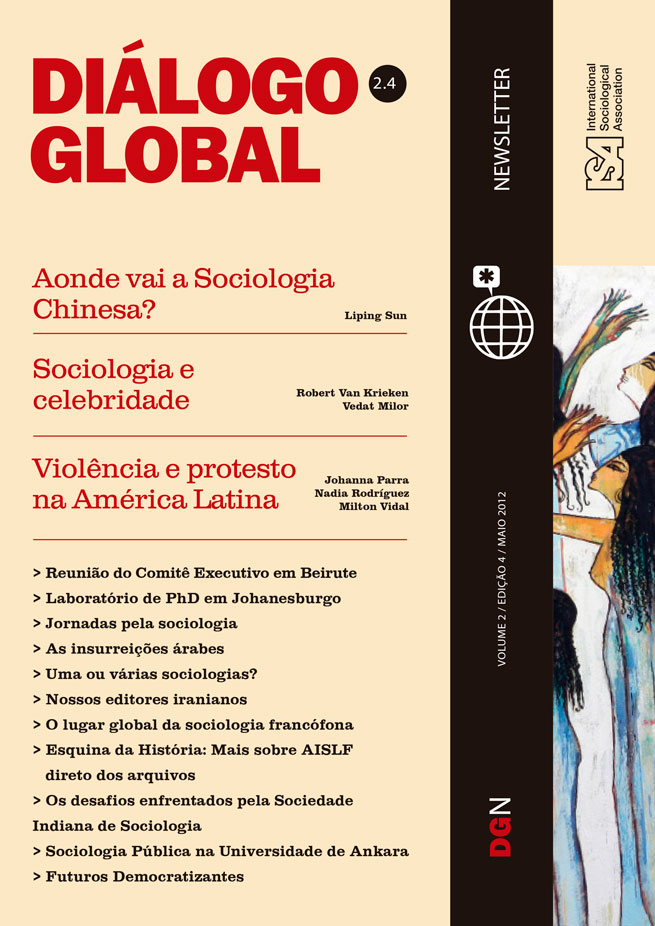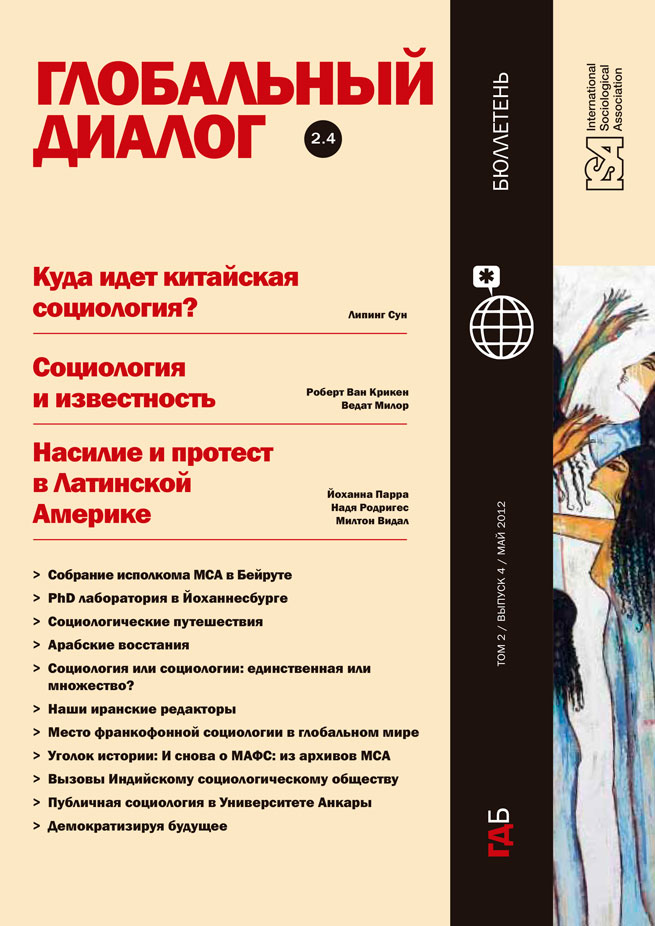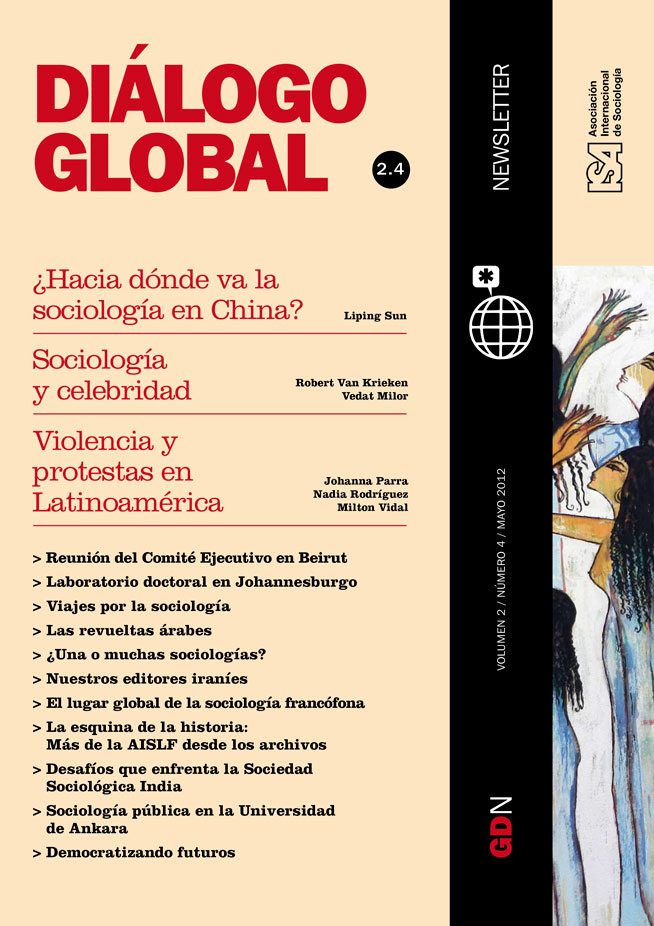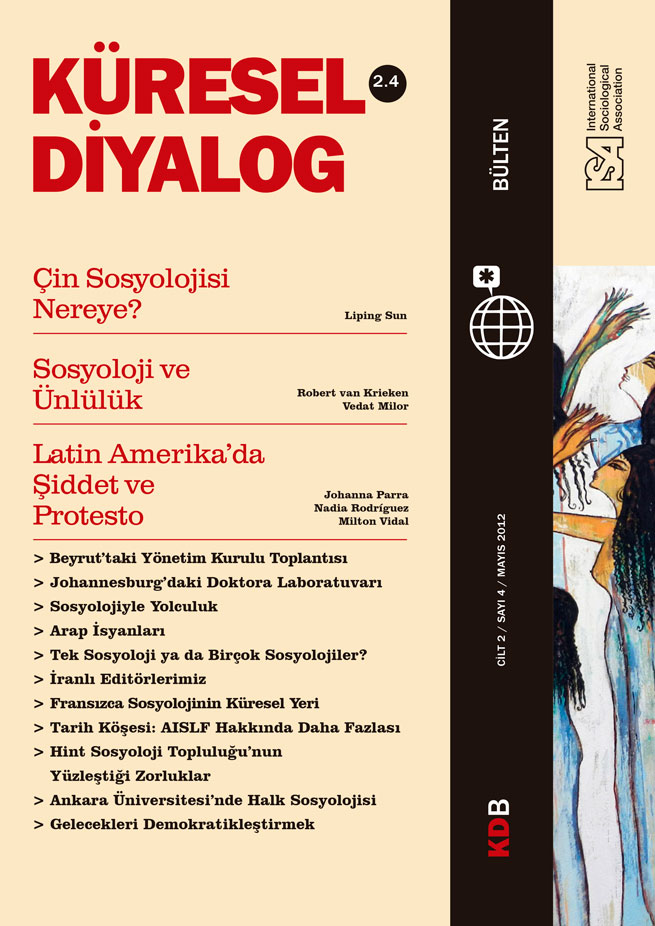Journeys through Sociology
July 31, 2013
Laleh Behbehanian hosted the program “Journeys through Sociology”. Global Dialogue asked her to assess what she learned from her interviews with the ISA Executive Committee.
Journeys through Sociology is a series of recorded interviews with the Executive Committee of the International Sociological Association. Conducted via Skype with committee members located throughout the world, the interviews provide a rare glimpse into these scholars’ personal journeys through sociology. The interviews focused on exploring two main questions: how they came to be drawn to sociology, and the challenges they have faced. All of the interviews can be found on the ISA’s webpage at http://www.isa-sociology.org/journeys-through-sociology/.
While the interviews are full of fascinating personal accounts, collectively they also highlight the many experiences shared by sociologists across space and time. Most fundamentally, they point to a deep sense of curiosity about the social world. Thus, Yoshimichi Sato discusses how he was drawn to sociology as a way of making sense of “social puzzles,” while Jennifer Platt describes the excitement of working with different sorts of empirical data. For many of these scholars, their sociological curiosity was ignited through experiences of travel or migration. Michael Burawoy’s sociological imagination was fueled by his travels to the US, India and Zambia, while Habibul Khondker’s experiences of migration from Bangladesh to Canada, Singapore and the UAE shaped his perspective as a “roving sociologist” engaging in comparative research. Tom Dwyer describes early experiences of “estrangement” growing up in an immigrant Irish family in New Zealand, as well as during travels throughout his youth, and how this estrangement inclined him towards thinking sociologically about the world. Vineeta Sinha discusses a similar theme when describing the sense of “discomfort” instilled by her sociology professors and how this presented exciting new possibilities for interpreting the world.
It is no surprise that many of these scholars were initially drawn to the discipline through inspirational teachers, an inspiration they aim to pass on to their own students. Tina Uys recounts the impression made by her own teachers, and how she utilizes sociology to understand and address the challenges currently facing students in South Africa. Simon Mapadimeng, also from South Africa, was introduced to the discipline by professors that were deeply involved in anti-Apartheid struggles, leading to his own commitment to nurturing a new generation of black South African sociologists.
One theme, however, surfaced recurrently in the interviews: that of pursuing sociology as a means of social change, with virtually all the discussions turning to the potential power of sociology to address urgent social, political and economic issues. Jaime Jiménez recalls working on the first computer in Mexico as a university student in 1958 and how it seemed to hold the promise of solving the nation’s problems, leading him to pursue quantitative research geared to socioeconomic problems. Dilek Cindoglu describes how the political unrest in late 1970s Turkey led her to sociology. “I wanted to understand what is going on in Turkey. And I still do!”
Many of the interviews provide fascinating accounts of the intersection of biography and history that led scholars down the path of sociology. Ishwar Modi speaks of the period after Independence in India and how the attention of social scientists turned to reconstruction and development. Chin-Chun Yi was led to sociology by the dramatic social transformation of 1970s Taiwan, while Emma Porio’s journey through sociology was fueled by a desire to understand the rapid social changes overtaking the Philippines under Martial Law. Elena Zdravomyslova offers a captivating account of the influence of her father and his colleagues as they launched Soviet sociology, and how after becoming disillusioned with the discipline in the late 1970s, sociology once again began to flourish with the openings created by Perestroika.
The interviews also provide a view of the range of challenges facing sociologists throughout the world. Some of these challenges are difficulties posed by gender, race or nationality, while others are more universally shared. Many scholars in the Global South emphasize the struggle to expand sociological theory beyond its traditional Eurocentric boundaries and the need to address the continued global inequalities in the production of sociological knowledge (in terms of language, journals and publications, research priorities, etc.). Many of these scholars grapple with the challenge of undertaking research that is both locally rooted and globally relevant. Sari Hanafi eloquently captures this tension in relation to publishing, describing it as a choice between “publishing globally and perishing locally,” and “publishing locally and perishing globally.”
There are also a number of challenges that surface more universally throughout the interviews, including those related to the constraints of disciplinary boundaries. Raquel Sosa describes her efforts to develop interdisciplinary research and collaboration within Latin America and the importance of “looking for different kinds of explanations of social reality.” Robert van Krieken argues that sociology can play a leading role in encouraging interdisciplinary thought and describes how he was always inclined towards the field because of the ways it enabled him to draw upon and engage with other kinds of knowledge. Many of the interviews also focus on the challenge of balancing the different roles of the sociologist (teaching, research, administration, activism, etc.) and negotiating the different moments of sociological research (professional, critical, policy, and public). Margaret Abraham reflects on this balancing act through a discussion of the intersection of her research, teaching and activism on domestic violence within South Asian communities in the US.
These interviews demonstrate the diverse fascination of sociology to different generations in different places in the world. They show just how interesting and entertaining are the leaders of the ISA. If you doubt me, then turn to the end of each interview where the respondent tells us what they would have done had they not been a sociologist – lawyers, doctors, journalists, architects, but also belly-dancers, ballerinas, bar owners, carpenters, or the host of a culinary show called “stirring it up.” We are lucky, indeed, to have such a diverse and humane group serving our association.
Laleh Behbehanian, University of California, Berkeley, USA

